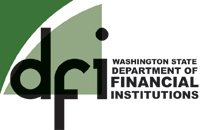
Fall 2019 Newsletter
From the Field – Common Exam Findings
The following are some of the more common violations our exam teams in each industry found during examinations in the last quarter:
- MSB Programs
- Mortgage Originations - Mortgage Broker
- Mortgage Originations - Consumer Loan
- Mortgage Servicing
- Escrow Agent
MSB Programs
The most common violations discovered during recent examinations are deficiencies in anti-money laundering program (including AML risk assessments), business resumption/disaster recovery plans, quarterly MSBCRs through the NMLS, and transaction disclosures. See below for a summary of these compliance areas.
- Anti-Money Laundering Program and Risk Assessment - Licensees are required to conduct an anti-money laundering risk assessment, from which to design an effective anti-money laundering program tailored to the Licensee’s actual policies and procedures as required by 31 CFR 1022.210.
- Business Resumption/Disaster Recovery Plan - Licensees are required to establish written policies and procedures in the event of an interruption to business or damage to books and records. This includes policies and procedures for responding to a data security breach per WAC 208-690-280, and WAC 208-690-270, and records disposal policy per WAC 208-690-125.
- Quarterly Money Services Business Call Reports (MSBCRs) - Licensees must report quarterly all relevant financial information, permissible investment information, and licensed MSB activity money transmission volumes through the NMLS within 45 days of the previous quarter’s end date. Reports through the NMLS are required by RCW 19.230.152, including material change and adverse action reporting as required by RCW 19.230.150.
- Transaction Disclosures - Licensees must provide specific disclosures prior to each transaction as required by WAC 208-690-205. For all transactions, a fraud disclosure must be made. Additional disclosures are required by licensees engaging in virtual currency transactions, or currency exchange transactions dealing with a currency of limited convertibility.
Examinations of Check Cashers continue to see findings related to maintaining proper accounting records. See below for a summary this compliance area.
- Accounting and Financial Records - Licensees are required to maintain certain accounting and financial records for at least two years per WAC 208-630-610. These records include the following:
- Amount of checks cashed;
- Amount of fees charged for cashing checks;
- Amount of cash deducted from the transaction for the sales of other services or products;
- A cash reconciliation summarizing each day's activity, and reconciling cash on hand at the opening of business to cash on hand at the close of business. Such reconciliation must separately reflect cash received from the sale of checks, redemption of returned items, bank cash withdrawals, cash disbursed in cashing of checks, cash disbursed in making small loans, cash received in payment of small loans, and bank cash deposits.
Mortgage Originations - Mortgage Broker
Some common violations noted during mortgage broker exams continue to be Mortgage Call Report issues, advertising, and compensation plans for individual loan originators.
- Mortgage Call Reports – Licensees are required to file quarterly Residential Mortgage Loan Activity filings within 45 days of the quarter ending. Financial Condition filings are required to be submitted within 90 days of the company fiscal year end. The Act requires that filings be complete and accurate, reporting loan activity, revenue, and all licensed mortgage loan originators licensed by the Company.
- Advertising – Licensees not putting their NMLS ID on advertising pieces. Electronic advertising on the internet or other venues requires you use your main license name and your main license number. Also, we continue to see the use of “best” and “lowest” when referencing rates and fees. Both are prohibited terms. The use of those terms on a company’s home page is prohibited,
- Compensation Plans – Compensation plans for individual loan originators cannot be set as a percentage of the compensation received from the lender. That is considered a proxy to the transaction and is strictly prohibited by the rule.
Mortgage Originations – Consumer Loan
Some common violations noted during the last quarter for the lenders continue to be Mortgage Call Report issues, Rate Lock Agreement issues, and not completing a compliant Closing Disclosure.
- Mortgage Call Reports – Licensees are required to file quarterly Residential Mortgage Loan Activity filings within 45 days of the quarter ending. Financial Condition filings are required to be submitted within 90 days of the company fiscal year end. The Act requires that filings be complete and accurate, reporting loan activity, revenue, and all licensed mortgage loan originators licensed by the Company.
- Rate Lock Agreement Issues – The Department provides a model form that when completed properly, provides a safe harbor for the company disclosing rate locks. However, a licensee must complete the form. We find that required fields in the rate lock are often blank.
- Closing Disclosures – Examiners have noted several exams this last quarter that did not include seller paid fees on the Closing Disclosure. Real estate commissions, title insurance, excise tax, and other applicable fees are required by TILA to be on the document. In addition, some lenders have left the Contact Information on page 5 for the Settlement Agent blank. It is the lender’s responsibility to make sure the Closing Disclosure is accurate and complete.
Mortgage Servicing
The most common mortgage servicing violation for the third quarter is failure to file accurate annual assessments. Many companies report their servicing portfolio as of December 31st. Although this is what the Q4 MCR asks for, it is not what the instructions for the annual assessment ask for. Your annual report should never match your fourth quarter MCR filed through NMLS. Licensees should take care to follow all instructions when filing their annual reports, and call the department if any questions arise.
The other common violation is failure to maintain an adequate Compliance Management System (CMS). WAC 208-620-585 requires that a company’s CMS be written, and provide for, amongst other things, training and monitoring. In several instances, licensees responded to examination findings saying specific corrective measures or actions have been enacted. When a subsequent examination finds no evidence of the specific corrective actions, resulting in repeat violations, that indicates a deficient CMS.
For instance, pledging to add a link on the company’s home web page to the company’s NMLS Consumer Access web page, and not following through, indicates a breakdown in the licensee’s CMS. Likewise, responding by saying loan modification denial letters have been changed for Washington State borrowers to allow 30 days to appeal a loss mitigation denial instead of 14 days, and not implementing the revision, shows a licensee’s CMS is not effective.
Please review the regulation linked above and work to ensure remedies pledged in responses to prior examinations are fully enacted and effective.
Escrow Agent
The most common violations or internal routine and control recommendations cited during recent examinations are Information Security Program best practices, Closing Disclosure errors, and failure to maintain required records.
- Information Security Program (ISP) best practices - The examiner recommends escrow agents implement the following ISP version control guidelines:
- assign the document a version number(e.g. name the first version of the document ISP 1.1)
- state the document most recent revision date (e.g. ISP 1.1 most recent revision date is October 1, 2017)
- include a table within the ISP documenting all versions of the document, revision date, and the changes made to the document. An example would be
Version Revision Date Change Detail ISP 1.1 Revised October 1, 2017 ISP adopted and implemented ISP 2.1 Revised October 1, 2018 Annual ISP training requirements added to document ISP 3.1 Revised October 1, 2019 Social media policy added to document
- Closing Disclosure (CD) errors - The lender-prepared CD incorrectly states escrow fees as payable to the title company instead of the escrow agent. The Department acknowledges the lender typically prepares the CD and is ultimately responsible for determining if a revised CD should be issued, but as a best practice, the escrow agent should notify the lender of CD errors.
- Required records - Original voided checks must be maintained. Escrow agents may image all required escrow records and destroy the original documents except for voided checks.

 We Want Newsletter Feedback:
We Want Newsletter Feedback: